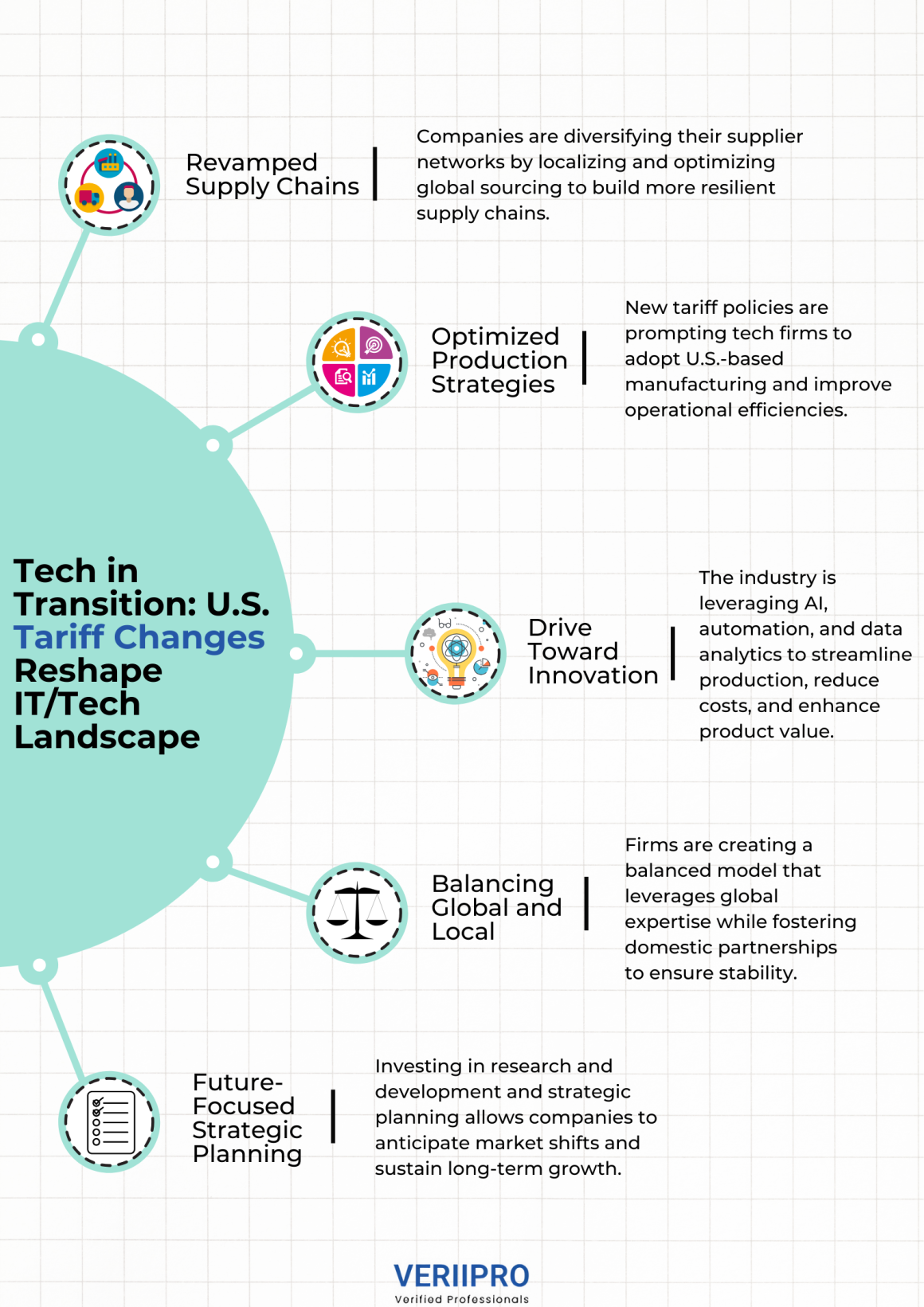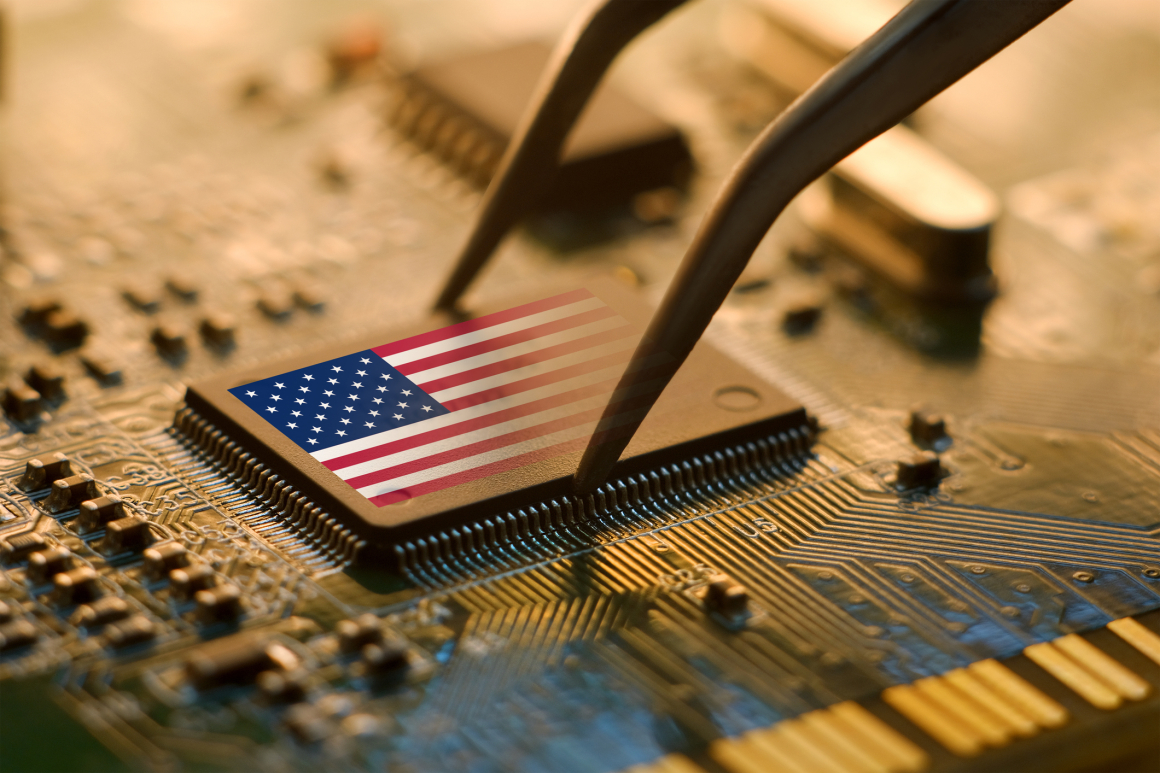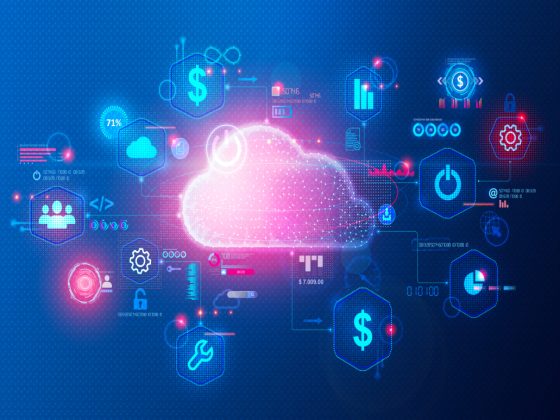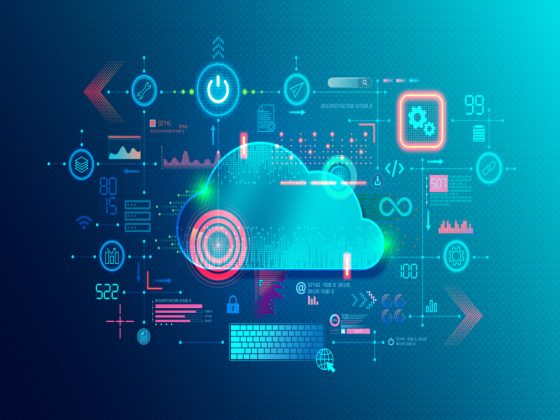Tech in Transition: How New U.S. Tariff Changes Are Reshaping the IT/Tech Landscape
In today’s fast-evolving market, the technology sector is witnessing a significant transformation due to recent U.S. tariff changes implemented by the Trump administration in 2025. These adjustments, while not primarily political in nature, are impacting the IT and tech industry by shifting supply chains, influencing production costs, and fostering innovation. As companies navigate these changes, they are discovering new opportunities and adapting their strategies to thrive in the altered economic environment.

Redefining the Tech Supply Chain
The new tariff policies have triggered a re-evaluation of global supply chains for many tech companies. Traditionally reliant on a complex network of international suppliers, firms are now exploring ways to diversify and localize their sourcing strategies. According to a McKinsey & Company analysis, companies that adapt their supply chains can not only mitigate risks but also unlock efficiency gains and drive innovation. This supply chain reconfiguration is prompting a strategic pivot: companies are investing in domestic manufacturing while still maintaining a global outlook to secure high-quality components.
Adapting Manufacturing and Production Strategies
Tariffs directly affect the cost structure of manufacturing, which, in turn, influences product pricing and market competitiveness. In the face of these new tariffs, many tech companies are revisiting their production models. Firms are increasingly seeking alternatives by reallocating resources to ramp up U.S.-based production while also fostering closer ties with emerging markets that offer competitive pricing and robust quality standards. A study by the Harvard Business Review indicates that such strategic shifts can lead to a 15-20% improvement in operational efficiency over time.
This transition not only ensures that tech companies remain competitive in pricing but also reinforces a commitment to quality and innovation. The emphasis has shifted from merely reducing costs to strategically optimizing production processes and improving product value—an approach that has proven effective in an environment of constant change.
Fostering Innovation Amid Economic Shifts
Despite the challenges posed by tariff changes, the IT/Tech industry is using these economic signals as a catalyst for innovation. One of the crucial adaptations is investing in advanced manufacturing techniques and digital transformation initiatives. Leading tech companies are leveraging artificial intelligence, automation, and data analytics to streamline operations and enhance productivity. Such innovations not only reduce dependency on traditional manufacturing methods but also pave the way for smarter, more agile business models.
For instance, the integration of AI into production and logistics has allowed companies to predict demand fluctuations and adjust their supply chains in real time. This proactive approach minimizes disruptions and ensures a smooth transition through economic uncertainties. Industry experts from IBM and other tech leaders have underscored that embracing technology-driven processes is key to sustaining growth in an era marked by evolving regulatory landscapes.
Enhancing Global Integration While Embracing Local Opportunities
The new tariff regime underscores an essential tension between global integration and local production. On one hand, the IT/Tech industry remains deeply interconnected on a global scale; on the other, companies are increasingly recognizing the value of local partnerships and manufacturing hubs. The dual strategy of maintaining global connectivity while strengthening domestic operations is emerging as a successful model for resilience. This blended approach allows firms to harness the benefits of global expertise while enjoying the stability and security of localized operations.
By striking this balance, companies can better navigate the complex regulatory environment while continuing to innovate and capture growth opportunities. The strategic shift not only mitigates risk but also reinforces long-term business sustainability by creating a more robust, diversified foundation.
Navigating Economic Uncertainty with Strategic Planning
The changes brought about by the recent tariffs have also highlighted the importance of strategic planning in an era characterized by economic uncertainty. Tech companies are investing significantly in research and development to anticipate market shifts and align their long-term strategies with evolving economic conditions. This forward-thinking approach is supported by regular market analysis and scenario planning, ensuring that businesses remain agile and capable of responding to unforeseen challenges.
Experts suggest that companies with robust contingency plans are better positioned to weather the storm of economic fluctuations. By incorporating innovative strategies into their planning, businesses can not only adapt to current tariff policies but also lay the groundwork for future technological advancements and market leadership.
Embracing a Future of Sustainable Growth
The shift in tariffs is driving the IT/Tech industry to reconsider traditional models and adopt a future-focused mindset. This transformative period has spurred investments in sustainable practices, resource-efficient manufacturing, and cutting-edge technological solutions that promote long-term growth. As companies embark on this path, the potential to reshape the technology landscape becomes clear: enhanced efficiency, improved production quality, and deeper integration across operations are all within reach.
Looking ahead, the tech industry is poised to benefit from this period of transition. The lessons learned from adapting to new tariffs will likely serve as a blueprint for navigating other regulatory and economic challenges in the future. As companies continue to innovate and adapt, the result will be a more resilient, dynamic, and forward-thinking IT/Tech landscape.
In summary, the recent tariff changes implemented in 2025 by the Trump administration are significantly reshaping the IT/Tech industry. While these policies present challenges, they also offer numerous opportunities for innovation, supply chain reconfiguration, and strategic growth. As companies adapt by embracing both local and global strategies, the future of the tech industry promises a harmonious blend of efficiency, innovation, and sustainability.
Looking for opportunities in tech innovation and transformation? VeriiPro is here to help!









